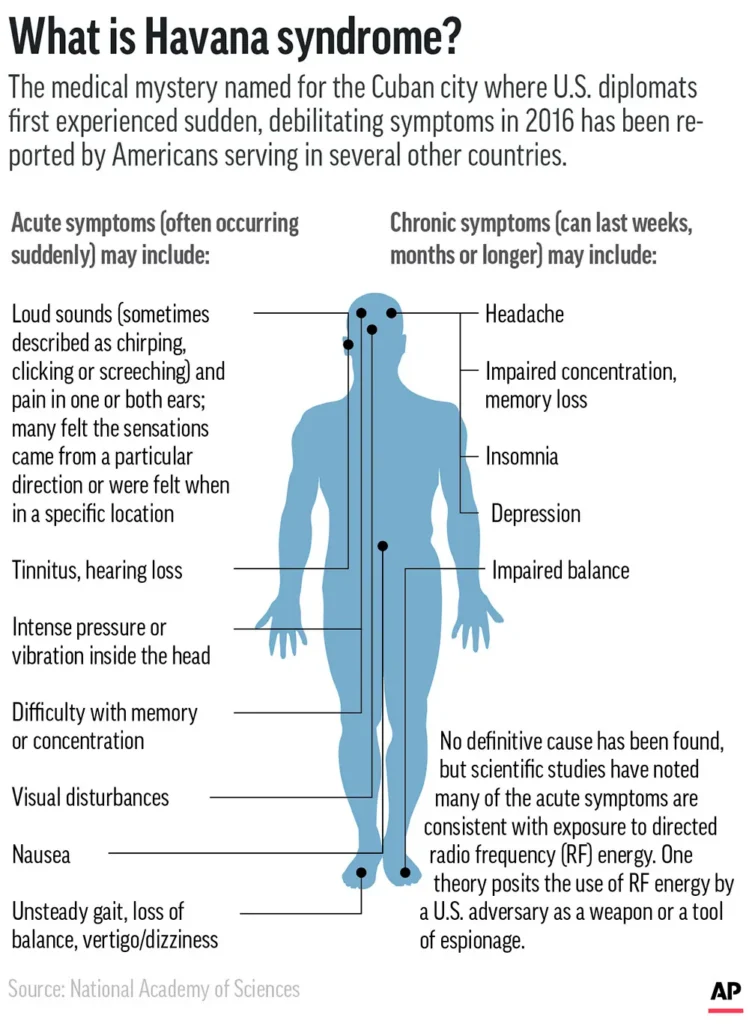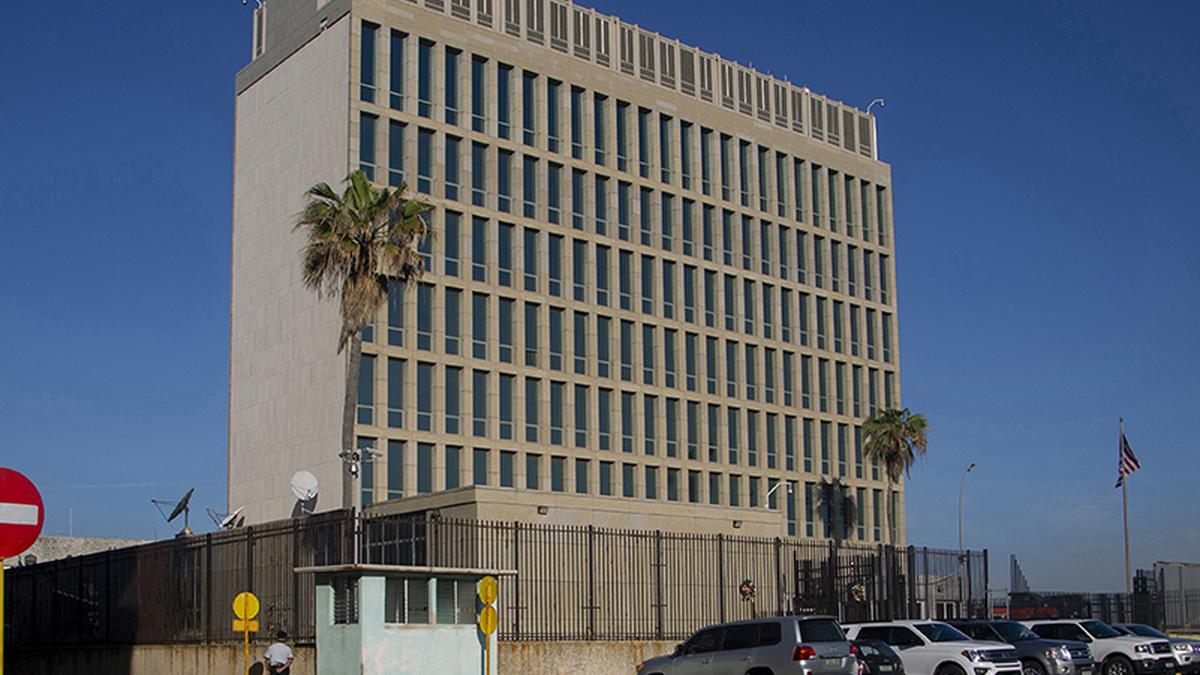In recent years, an alarming phenomenon known as Havana Syndrome has captured widespread attention, especially within diplomatic circles. This perplexing condition has left experts scratching their heads, with its elusive nature and puzzling symptoms. From Havana, Cuba, where it first gained notoriety, to other parts of the world, instances of Havan Syndrome have been reported, sparking concern and intrigue.
At its core, Havan Syndrome is characterized by a range of symptoms that include headaches, dizziness, nausea, cognitive difficulties, and in some cases, more severe neurological impairments. What sets this syndrome apart is its apparent association with diplomatic personnel and individuals in similar high-profile roles, particularly those stationed in foreign countries. The mysterious circumstances surrounding its occurrence have led to intense speculation and numerous theories attempting to explain its origins.
One prevailing theory suggests that Havan Syndrome may be the result of targeted microwave radiation or some form of directed energy weapon. This hypothesis gained traction due to reports of diplomats experiencing strange sensations and sounds, often described as a buzzing or piercing noise, preceding the onset of symptoms. However, concrete evidence supporting this theory remains elusive, leaving it shrouded in uncertainty.
Another hypothesis proposes that Havan Syndrome could be a psychosomatic response triggered by heightened stress or psychological factors within the diplomatic environment. The intense pressure, combined with the unique challenges of diplomatic postings, may manifest physically in susceptible individuals, leading to the reported symptoms. While psychological factors cannot be discounted, they alone may not fully explain the consistent pattern of symptoms observed across different cases.

Furthermore, some experts have raised concerns about the potential role of environmental toxins or pollutants in causing Havan Syndrome. Exposure to certain chemicals or substances prevalent in specific regions could conceivably trigger adverse health effects, including those reported in cases of the syndrome. However, investigations into environmental factors have yet to yield conclusive evidence linking them to Havan Syndrome.
Despite extensive research and investigation, the precise cause of Havan Syndrome remains a subject of debate and speculation. The complexity of the syndrome, coupled with the diverse range of symptoms and circumstances surrounding its occurrence, presents a formidable challenge to unraveling its mysteries. Efforts to understand and address Havan Syndrome continue, driven by a shared commitment to safeguarding the health and well-being of diplomatic personnel and individuals in similar roles.
In the absence of definitive answers, vigilance and collaboration among medical professionals, scientists, and policymakers are essential to mitigate the risks associated with Havan Syndrome. By fostering an interdisciplinary approach and remaining open to new evidence and perspectives, we can strive towards unraveling the enigma of Havan Syndrome and ensuring the safety and security of those affected by this perplexing phenomenon.
Picture Credits: AP/New York Post





